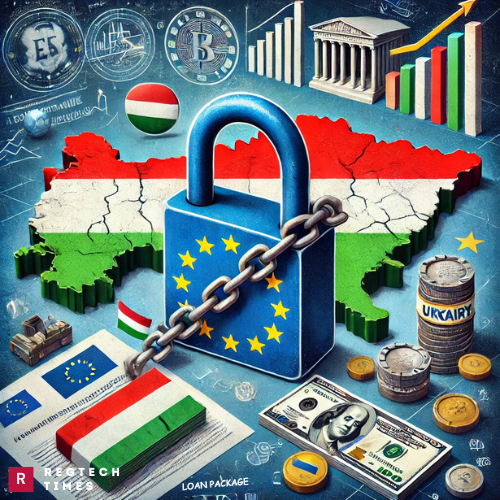In a notable development, Hungary has chosen to obstruct changes to the European Union’s sanctions imposed on Russia. This decision has caused a major delay in a planned loan package aimed at helping Ukraine during its ongoing conflict with Russia.
What is the Loan Package About?
The loan package of $50 billion was proposed during a meeting of G7 leaders, which includes powerful countries like the United States, Canada, and the United Kingdom. This loan aims to provide financial support to Ukraine as it persists in defending itself against Russian aggression. The money for this loan package will come from profits generated by Russian assets that have been frozen due to sanctions imposed by various countries.
When countries impose sanctions, they limit or prohibit trade and financial activities with specific nations. In this case, many Western countries, including EU member states, have frozen around $300 billion in Russian assets. However, they can only access the income generated from these assets, which is estimated to be about $3.2 billion each year.
The plan is not to take away the frozen assets outright. Instead, the loan package will be funded using the interest and profits made from these frozen funds over time. This is important because it allows the countries involved to help Ukraine without directly confiscating Russian money.
Hungary’s Blockage and its Reasons
On October 8, Hungary’s Finance Minister declared that the country would prevent the essential modifications to the EU’s sanctions framework. These changes are crucial for the loan package to move forward. Essentially, they are asking the EU to modify how often sanctions against Russia can be renewed. Currently, these sanctions are renewed every six months. The new proposal would change this renewal period to every three years.
This modification is being pushed by the United States, which plans to contribute about $20 billion to the loan package. If the EU agrees to this change, it would significantly reduce its own financial contribution, allowing the U.S. to take a more substantial role in funding the loan.
Bold Sanctions Hit Hamas Backers on Attack Anniversary
Hungary’s government has expressed its belief that the issue of extending sanctions against Russia should be decided after the upcoming U.S. presidential elections, which are set for November 5, 2024. The finance minister has pointed out that the two main candidates for the presidency have different views on how to handle support for Ukraine. One candidate is more in favor of continuing strong support, while the other has suggested a more cautious approach.
Hungary’s stance is that it is wise to wait until after the elections to see what direction the new U.S. administration will take regarding support for Ukraine. This wait-and-see approach reflects Hungary’s desire to align its decisions with potential changes in U.S. policy.
The Broader Impact on Ukraine and the EU
Hungary’s decision has broader implications for Ukraine and the European Union as a whole. For Ukraine, the delayed loan package could mean a significant financial shortfall at a time when it needs all the support it can get. The country is facing numerous challenges, including military expenses, humanitarian needs, and the rebuilding of its economy. Every delay in financial aid could have serious consequences for its ability to defend itself and recover from the conflict.
For the European Union, this situation reveals tensions within its member states regarding how to handle relations with Russia. While many countries in the EU support strong sanctions and assistance for Ukraine, Hungary’s blockage highlights differing views on how to approach these issues. This division can complicate the EU’s ability to respond effectively to the ongoing crisis.
Hungary’s blocking of the changes to the EU sanctions regime is a critical moment in the ongoing support for Ukraine. The decision holds up a significant loan package, which is intended to provide much-needed financial assistance to a country in crisis. As the situation develops, it will be crucial to see how these dynamics play out in the context of international relations, financial aid, and the ongoing conflict in Ukraine.


